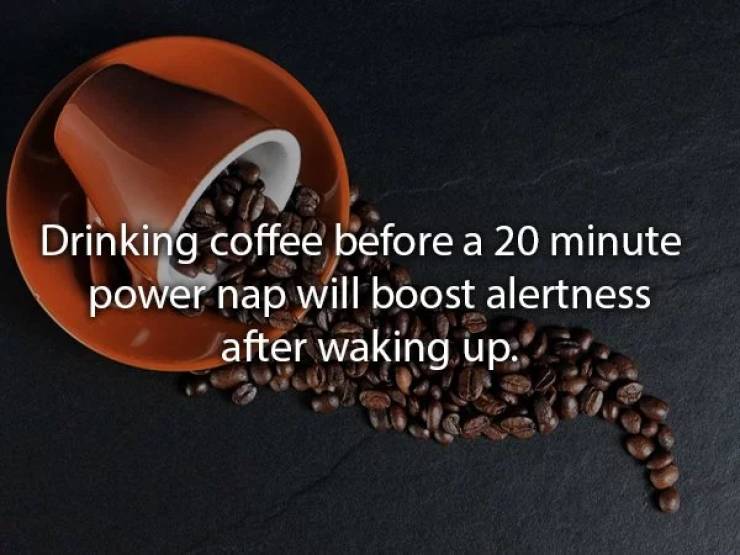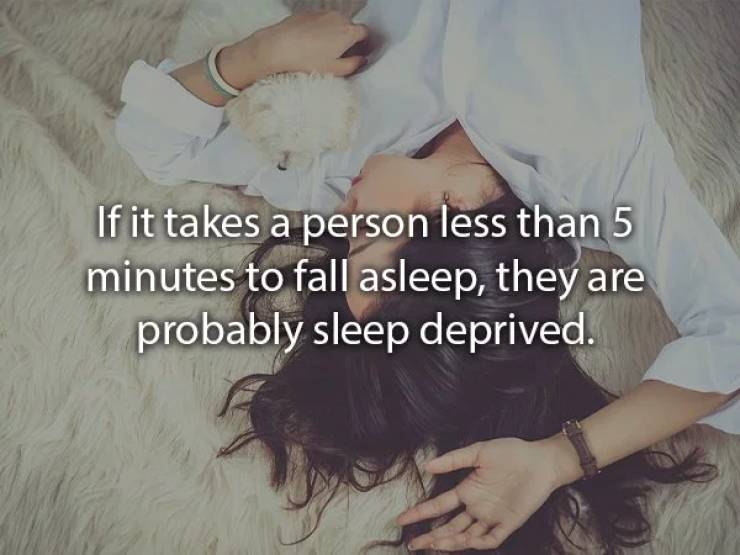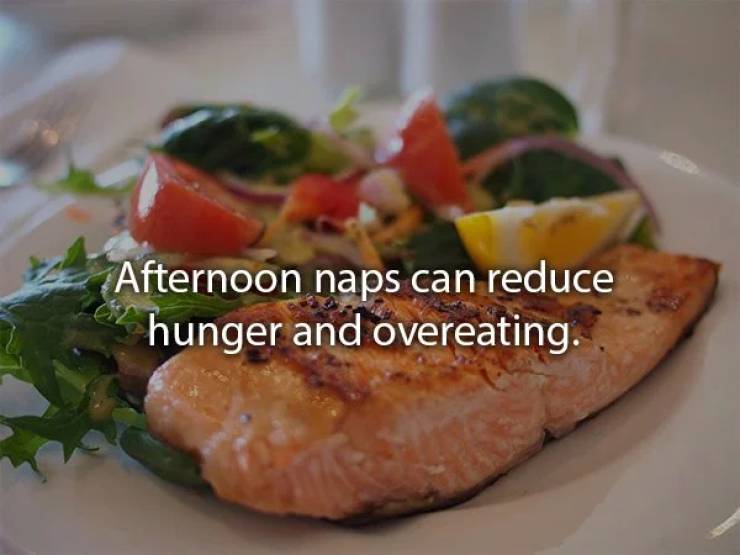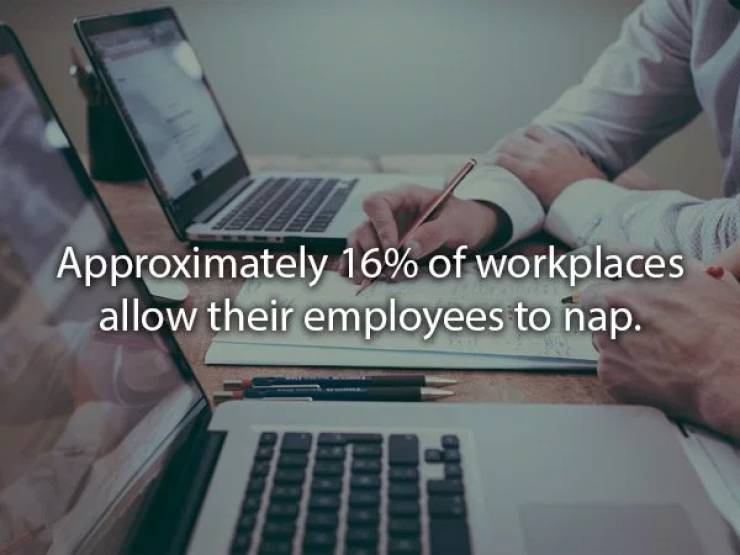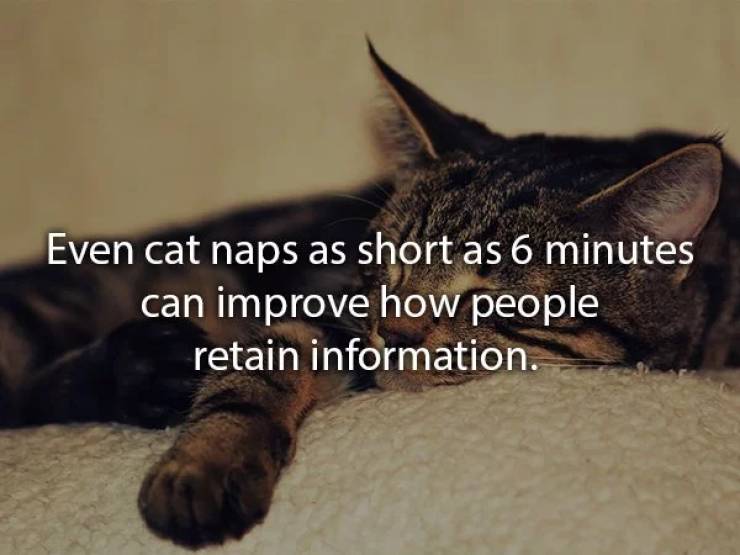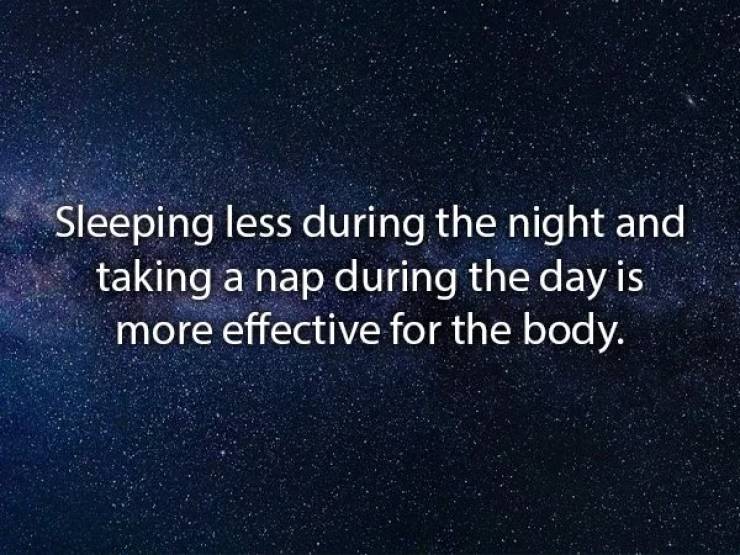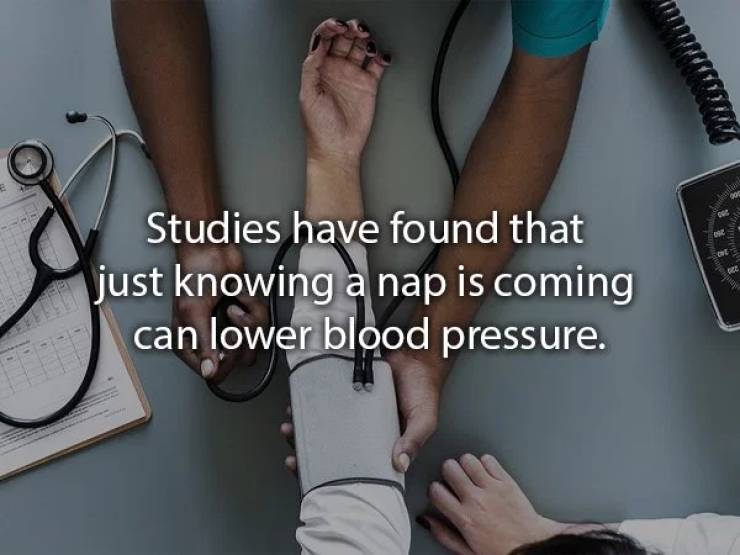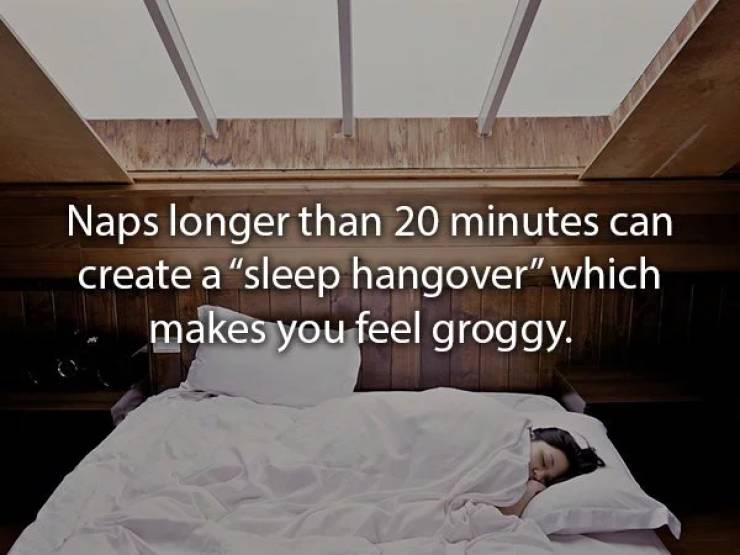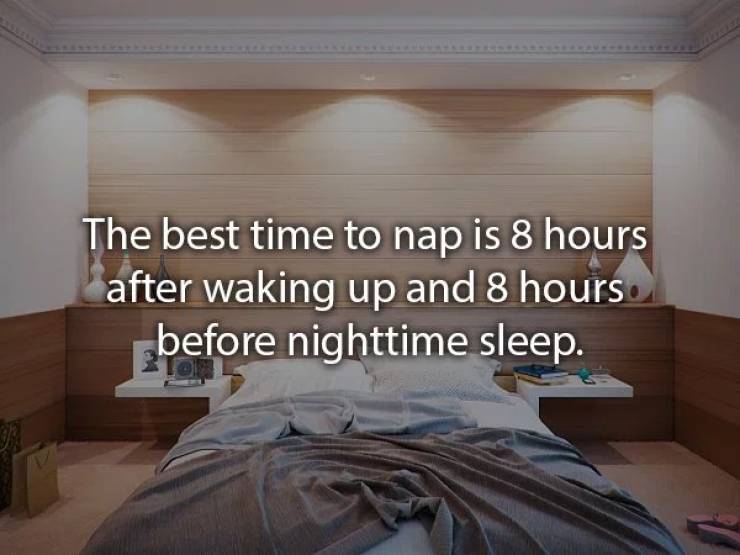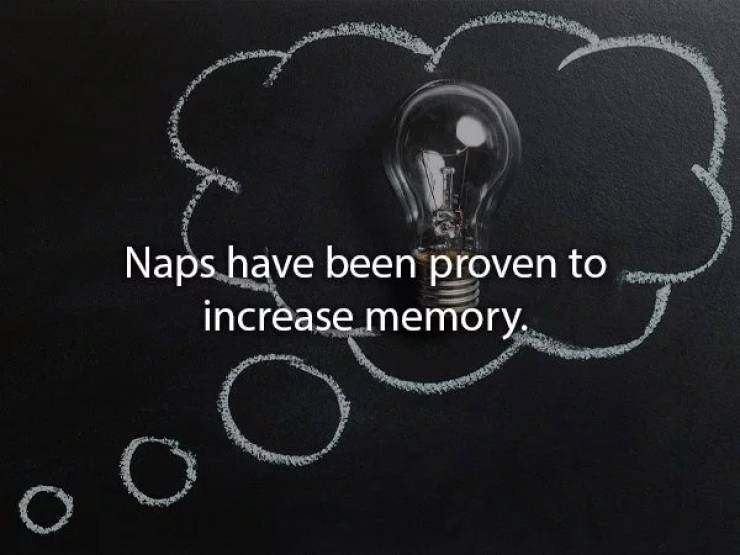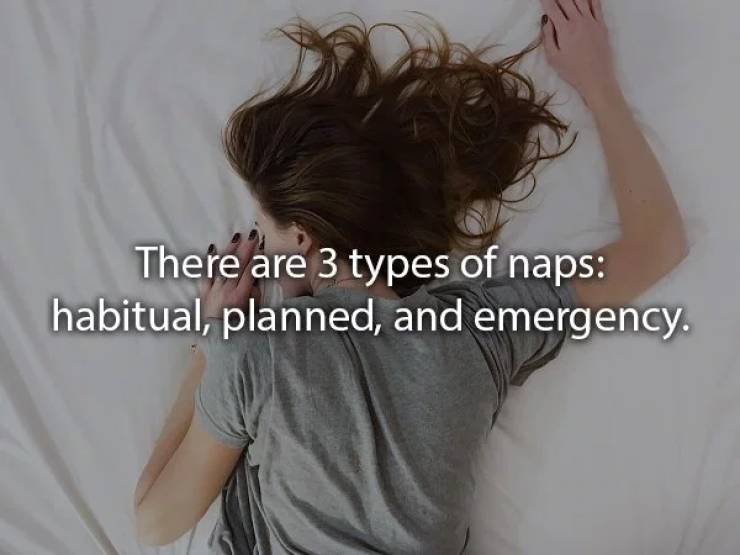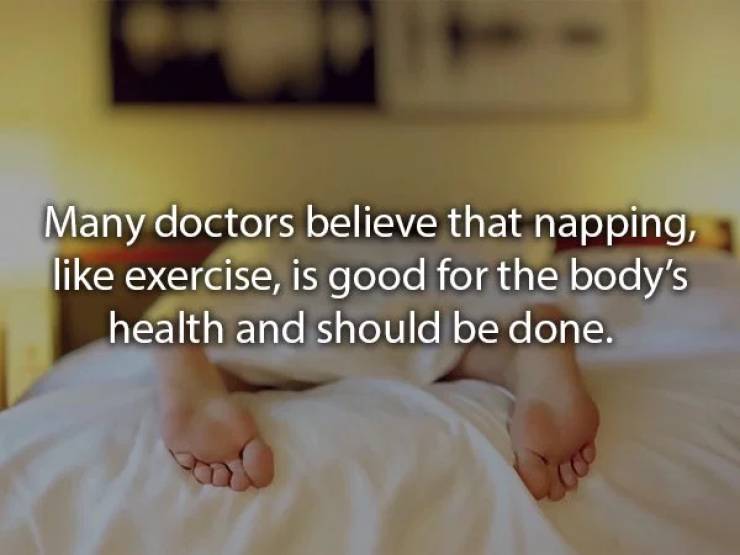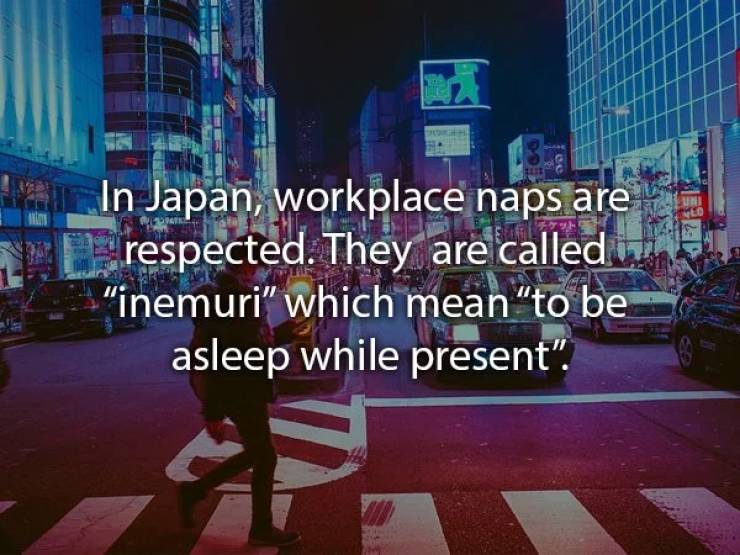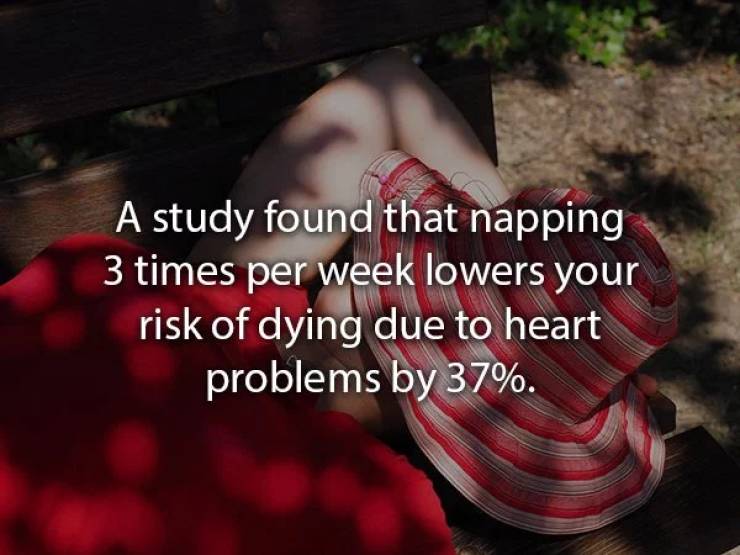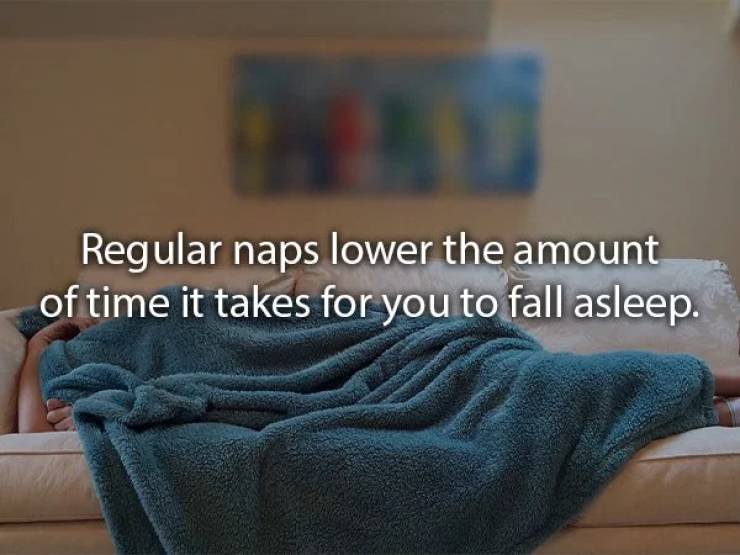Researchers suggest this because it takes 20-30 minutes for caffeine to kick in, so it’ll start working around when you wake up.
Sleep loss affects the hormones associated with hunger, so tired people are more likely to eat too much. Naps can reverse the negative effects on your metabolism.
Researchers in Britain compared getting more sleep at night, taking a nap during the day, and using caffeine as a way to cope with afternoon sleepiness. Of the three, napping won.
However, this can make problems worse for people who suffer from insomnia or bad quality of sleep at night.
This was found in a study by California–Berkeley. For example, if you wake at 6 a.m. and go to bed and 10 p.m., then 2:00 p.m. would be the ideal time for a nap.
This is according to an “Ask Men” survey.
Habitual naps are taken at the same time every day, planned naps are scheduled, and emergency naps happen when a person can’t continue an activity without sleep.
It’s seen that people who are tired during the day have sacrificed nightly sleep to work longer and harder, which is respected.

